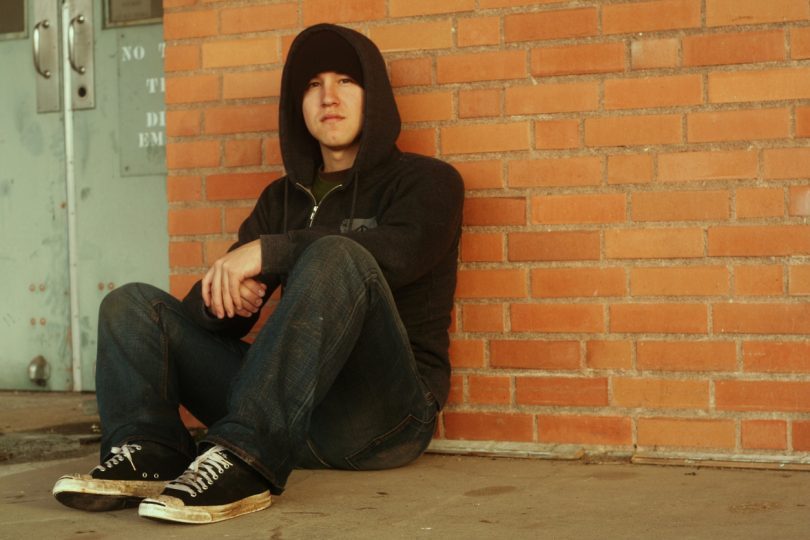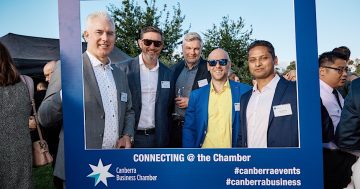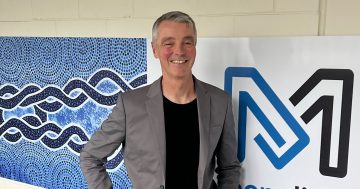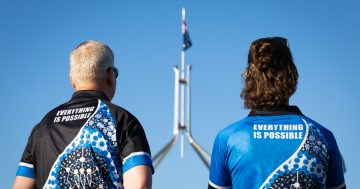
Menslink provides the only male-specific help for troubled young men and boys in Canberra. File photo
There’s plenty of bad news about young men. They’re destructive. They’re out of control hoons, a menace to society, and they need locking up to keep the rest of us safe. All of which is not especially useful if you’re the young man in question, their worried parent or their teacher and desperately need help.
But brand new research from the University of Canberra’s Centre for Applied Psychology, released today, shows Menslink’s work with young Canberra men and boys gets them out of trouble, gives them life skills and goes on improving their lives for years afterwards.
Researchers interviewed former clients and carers (mostly single mums) and assessed their life satisfaction and relationship satisfaction before and after seeking support from Menslink, and around two and a half years later. 94 per cent of Menslink participants reported positive long-term changes in life satisfaction despite the often very challenging circumstances they faced.
“To be honest, I went into it a little sceptically,” says lead researcher Dr James Neill from UC. “I would have expected a short-term gain, but of the 42 people we interviewed, not one had returned to their previous problematic behaviour, even years after going through the Menslink programme.”
The key seems to be that Menslink is male centred. That’s unique in the ACT and rare across the rest of Australia, but vital. “Male help-seeking is a real issue across all ages, but the adolescent male is the least likely of all to ask. We know from suicide statistics that they are also the ones most likely to go and do something drastic to deal with their problems,” Dr Neill says.
“The basic psychological ways to cope are to internalise and blame yourself or to externalise, blame others and act out. For every young guy acting out, there’s another one who is eating themselves up inside and who might not get noticed at all.”
Dr Neill believes that Menslink’s low key approach may be why it works so well. “It’s more like having a conversation with a mate. There’s not the stigma associated with going to a school counsellor or a psychologist.” And critically, Menslink offers immediate help rather than waiting weeks or months for a professional appointment.

CEO Martin Fisk says the help Menslink provides is cost-effective, with long-term effects. File photo
Menslink CEO Martin Fisk says “If you are a socially isolated person who has not learned emotionally intelligent skills for relationships, it’s so much easier to keep down that path of social isolation. That builds anxiety. You are less likely to get a job because you’re anxious and shy, and therefore less likely to engage in proactive behaviour. That can be a one-way ticket to poor mental health, crime, drugs and alcohol.”
The ongoing life skills lessons provided along with the counselling are pretty straightforward. “We show a young man how to be comfortable looking people in the eye and shaking hands, how to manage face to face relationships, how to talk to an adult in authority. We teach young men how to control anger. They learn how to engage in the relationships they need to sustain effective and productive lives.”
The process is also financially effective. Martin Fisk says that at roughly $1200 to support a young man in trouble, costs have actually declined over the past five years by 44 per cent. “We are very careful about spending, and we ensure that money from the government and donors goes into as much frontline support as possible.”
Menslink Board chair, Michael Battenally, says the UC research outcomes are a significant recognition of the ACT government and community’s high-value ongoing investment. “The capacity of Menslink to readily engage with young guys has always been a strength,” he said. “To now see the long-term benefits to the young guy and his family affirmed by independent research is fantastic. We’ll use it to build on the strength-based approaches we already take.”
But let the last word go to a local indigenous mother, who told Menslink “From the bottom of my heart, there are no words to describe how grateful I am. Honest to god, this one person you work with will have a ripple effect on people in my family and I cannot thank you enough. I will be grateful for these guys until the day I die.”
For more information and to get involved, visit the Menslink website.

















